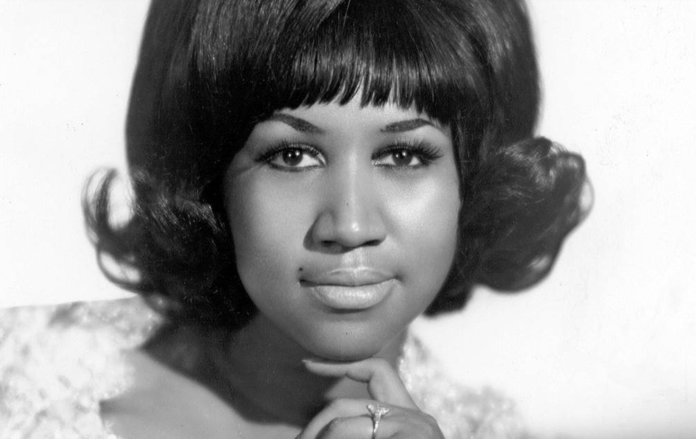In March of 1971, Joe Frazier defeated heavyweight champion Muhammad Ali in the “Fight of the Century” at Madison Square Garden. That same month, George Lucas released his first science fiction film THX 1138, partially shot in the unfinished tunnels of the Bay Area Rapid Transit subway system here in the City—and Aretha Franklin performed for three nights at the Fillmore West in hopes of broadening her crossover appeal by connecting with SF’s storied rock base.
Franklin had recorded over 20 albums, won five Grammys, and had 11 consecutive number-one pop and R&B singles by 1971. But she, her team, and more importantly Atlantic Records executive and Aretha producer Jerry Wexler, saw Fillmore West as that opportunity.
Bill Graham, famed concert promoter and Bay Area impresario had been pining to bring Aretha to his venue in hopes of providing his clientele with a well-needed education.
Many pundits believe the Altamont Speedway Free Festival and its tragic results ended ‘60s idealism. But the sound traveled forward into the next decade—Especially on Black radio.
There was a deluge of live soul and R&B albums that reflect the vibes of the “hippie” period at the top of the ‘70s. Some shining examples include Donny Hathaway’s iconic Donny Hathaway Live album covering Carole King and John Lennon to Curtis Mayfield’s interpretation of The Carpenters’ “We’ve Only Just Begun” on his Curtis Live! LP. These albums made musical statements. They logged numerous hours on Black and pop radio stations, AM and FM respectively—and yeah, made gobs of money despite the fact the ’60s were over.
Aretha Live at Fillmore West, recorded March 5, 6, and 7 at SF’s historic rock and roll music venue, gave an opportunity for the 20th century’s foremost virtuoso to take a crack at Paul Simon, The Beatles, Stephen Stills, and Bread’s “I’d Like To Make It With you” covers.
Delivered live in the moment, the rock constituency present was amazed. In the album released on May 19, 1971, these reinterpretations made the bonafide originals go poof.
Aretha’s main superpower—she possessed many—was to locate the overriding sensation in a song (be it euphoria or misery), internalize the data, and shoot it back out through the de facto number one interpreter of lyrics’ multidisciplinary vocal mechanism. Those readings are real.
Help us save local journalism!
Every tax-deductible donation helps us grow to cover the issues that mean the most to our community. Become a 48 Hills Hero and support the only daily progressive news source in the Bay Area.
On-the-spot compositions.
Ask her audience.
This LP is a masterclass. Her well-known process allowed Franklin to release a recording of “Let It Be” before the Beatles had released theirs—because Paul McCartney had sent Jerry Wexler an acetate demo of the song in hopes she’d sing it.
It’s just a one example of Aretha’s genius in a paramount career.
And hey, I know. I get it.”Genius” gets tossed around like a cardboard Domino’s pizza in today’s Google-me-this world.
But keep in mind that this is the same Aretha Franklin who, late in her record-breaking career, saved the Grammy Awards by stepping in for opera dignitary Luciano Pavarotti and performing an unexpected-yet-still-gobsmacking performance of the aria “Nessun Dorma,” from Puccini’s “Turandot,” to a thunderous standing ovation.
Who else is able to execute like that after only a quick listening of the piece from a boombox?
Not just a genius. A queen.
So we understand, quickly, why those Fillmore shows leap with that mantra that led both the civil and women’s rights movements during the ’60s, “Respect,” accelerated to a touristy Vegas show pace.
Aretha, along with her backup singers Brenda Bryant, Margaret Branch, and Pat Smith a.k.a. the Sweethearts of Soul spin these sometimes-dingy white pop tunes into Soulsville canonization. I can’t recall a song by Bread getting reshuffled from ‘70s AM Gold directly into the red light district. But yes, Aretha toasts up that Wonder Bread. Makes it crispy.
With a line-up featuring King Curtis’ band the Kingpins, including Cornell Dupree on guitar, Bernard Purdie—author of the Purdie Shuffle and rhythm architect behind many Steely Dan albums—on drums, Jerry Jemmott on bass, Billy Preston on organ, and Curtis on saxophone, together with the Memphis Horns.
The outfit added to the gas and grit of Franklin.
“Respect,” “Eleanor Rigby,” and “Love the One You’re With”, these covers encapsulate America switching up into a new decade, but still wanting to bring something from the previous era, just without all the pain and suffering.
Aretha Live at Fillmore reached number one on the Billboard R&B album chart June 19, 1971. The venue closed several months afterward. In early 1972 Franklin recorded her best-selling album of all time “Amazing Grace” at the New Temple Baptist Church in Los Angeles with the Southern California Community Choir, under the direction of the Reverend James Cleveland. The Fillmore recordings capture an artist, crowd, and country trying their best to connect across the aisles.






